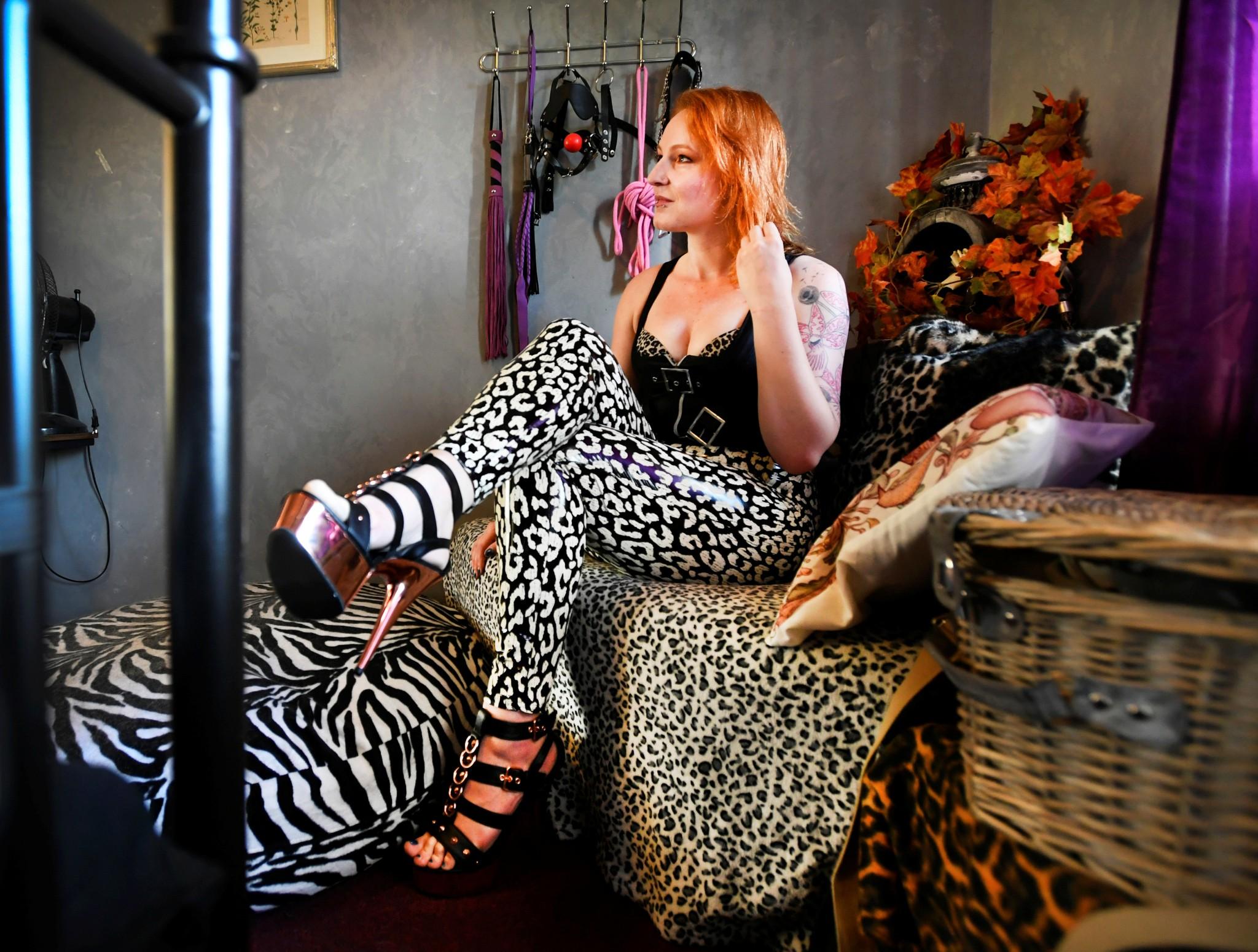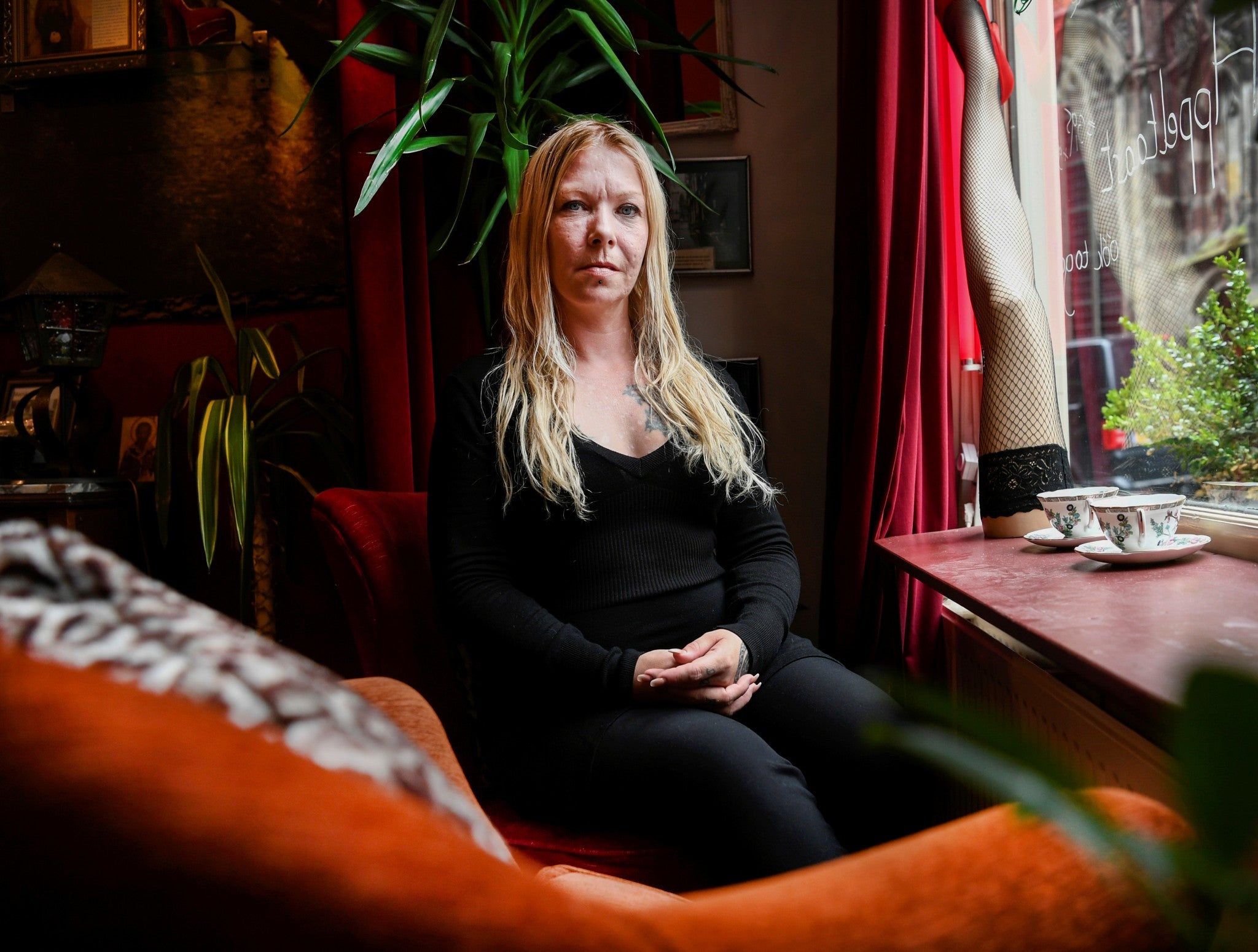Kissing and heavy breathing banned as Dutch sex workers wave goodbye to lockdown
‘If I am ill for a week that means a week without income,’ one worker says

Your support helps us to tell the story
From reproductive rights to climate change to Big Tech, The Independent is on the ground when the story is developing. Whether it's investigating the financials of Elon Musk's pro-Trump PAC or producing our latest documentary, 'The A Word', which shines a light on the American women fighting for reproductive rights, we know how important it is to parse out the facts from the messaging.
At such a critical moment in US history, we need reporters on the ground. Your donation allows us to keep sending journalists to speak to both sides of the story.
The Independent is trusted by Americans across the entire political spectrum. And unlike many other quality news outlets, we choose not to lock Americans out of our reporting and analysis with paywalls. We believe quality journalism should be available to everyone, paid for by those who can afford it.
Your support makes all the difference.Dutch sex workers welcomed customers back on Wednesday as the Netherlands further eased coronavirus measures, but they were advised to avoid heavy breathing and kissing to help reduce the risk of transmitting Covid-19.
Erotic dancers and prostitutes lost their main source of income for three-and-a-half months and generally did not have access to state support during lockdown.
They were surprised when the government brought forward the date they could reopen from a tentative 1 September to 1 July.
Amsterdam’s Red Light district, where thousands of tourists generally crowd the canals to see sex shows, erotic gift shops and prostitutes, has been deserted.
Red Light United, which represents Amsterdam’s window prostitutes, had campaigned to get back to work as soon as possible, noting some sex workers still had to pay rent on their premises and lockdown was forcing them to work illegally, exposing them to greater risks.
“I am really looking forward to going back to work,” said Moira Mona, a 29-year-old sex worker who will perform at an S&M club this week. “The extra income is going to be welcome, so in that sense I am hoping for a busy day ... although I don’t expect it to be as busy as before the corona crisis.”
Sex workers already adhere to strict health safety regulations in the Netherlands, but the industry has compiled a list of recommendations, including sexual positions to avoid.
Even with new guidelines, sex workers will be more exposed to the dangers of Covid-19 than other professions, said Debbie Mensink, a public health advisor in Amsterdam.
“There is a heightened risk. Sex workers already have a heightened health risk due to their line of work because people get so close to each other.”
Ms Mona, however, said she is not worried and will take precautions.
She added a few new items to her collection of latex outfits, stiletto heels and tasselled whips to adhere to the protocol: a leather face cover with metal studs, black gloves and surgical face masks.

“I don’t get unemployment benefits if I get sick, so if someone shows up and starts coughing or sneezing in my hallway I’ll say: ‘Can you come back another time?’ because if I am ill for a week that means a week without income.”
Ms Mona made some income during lockdown by doing webcam shows but said that if the government-imposed measures had remained in place much longer she would have spent her entire savings.
As the number of new infections and Covid-19 deaths fell fast in recent weeks, the Netherlands lifted most lockdown measures. The country has recorded more than 50,000 infections and over 6,000 deaths since mid-March.
Despite the improved Covid-19 statistics, people are advised to keep 1.5m (nearly 5ft) apart and must wear face masks while riding public transportation.
Those rules won’t apply to sex workers and health authorities recommend avoiding face-to-face encounters.
“We advise against literally getting in each others’ faces, where you can breathe in each others’ warm breath,” said Ms Mensink, the health worker. “We also advise against kissing because saliva carries the virus and you could transfer it that way.”
Reuters
Join our commenting forum
Join thought-provoking conversations, follow other Independent readers and see their replies
Comments